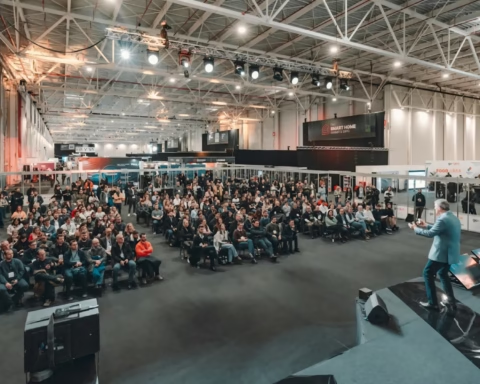Meta and IBM have launched an AI alliance of over 50 companies and research institutions to promote open innovation and open science in AI.
According to IBM News Room, to do that, the AI Alliance plans to start or enhance projects that meet the following objectives:
- Develop and deploy benchmarks and evaluation standards, tools, and other resources that enable the responsible development and use of AI systems at global scale, including the creation of a catalog of vetted safety, security and trust tools. Support the advocacy and enablement of these tools with the developer community for model and application development.
- Responsibly advance the ecosystem of open foundation models with diverse modalities, including highly capable multilingual, multi-modal, and science models that can help address society-wide challenges in climate, education, and beyond.
- Foster a vibrant AI hardware accelerator ecosystem by boosting contributions and adoption of essential enabling software technology.
- Support global AI skills building and exploratory research. Engage the academic community to support researchers and students to learn and contribute to essential AI model and tool research projects.
- Develop educational content and resources to inform the public discourse and policymakers on benefits, risks, solutions and precision regulation for AI.
- Launch initiatives that encourage open development of AI in safe and beneficial ways, and host events to explore AI use cases and showcase how Alliance members are using open technology in AI responsibly and for good.
To ensure open innovation in AI benefits everyone and that it is built responsibly, the AI Alliance consists of a broad range of organizations that are working across aspects of AI education, research, development and deployment, and governance.
- The creators of the tooling driving AI benchmarking, trust and validation metrics and best practices, and application creation such as MLPerf, Hugging Face, LangChain, LlamaIndex, and open-source AI toolkits for explainability, privacy, adversarial robustness, and fairness evaluation.
- The universities and science agencies that educate and support generation after generation of AI scientists and engineers and push the frontiers of AI research through open science.
- The builders of the hardware and infrastructure that supports AI training and applications – from the needed GPUs to custom AI accelerators and cloud platforms;
- The champions of frameworks that drive platform software including PyTorch, Transformers, Diffusers, Kubernetes, Ray, Hugging Face Text generation inference and Parameter Efficient Fine Tuning.
- The creators of some of today’s most used open models including Llama2, Stable Diffusion, StarCoder, Bloom, and many others.
Partners and collaborators include:
- Agency for Science, Technology and Research (A*STAR)
- Aitomatic
- AMD
- Anyscale
- Cerebras
- CERN
- Cleveland Clinic
- Cornell University
- Dartmouth
- Dell Technologies
- Ecole Polytechnique Federale de Lausanne
- ETH Zurich
- Fast.ai
- Fenrir, Inc.
- FPT Software
- Hebrew University of Jerusalem
- Hugging Face
- IBM
- Abdus Salam International Centre for Theoretical Physics (ICTP)
- Imperial College London
- Indian Institute of Technology Bombay
- Institute for Computer Science, Artificial Intelligence
- Intel
- Keio University
- LangChain
- LlamaIndex
- Linux Foundation
- Mass Open Cloud Alliance, operated by Boston University and Harvard
- Meta
- Mohamed bin Zayed University of Artificial Intelligence
- MLCommons
- National Aeronautics and Space Administration
- National Science Foundation
- New York University
- NumFOCUS
- OpenTeams
- Oracle
- Partnership on AI
- Quansight
- Red Hat
- Rensselaer Polytechnic Institute
- Roadzen
- Sakana AI
- SB Intuitions
- ServiceNow
- Silo AI
- Simons Foundation
- Sony Group
- Stability AI
- Together AI
- TU Munich
- UC Berkeley College of Computing, Data Science, and Society
- University of Illinois Urbana-Champaign
- The University of Notre Dame
- The University of Texas at Austin
- The University of Tokyo
- Yale University
How the AI Alliance Will Work
According to IBM news Room, the AI Alliance will begin its work with the formation of member-driven working groups across all major topical areas listed above. The Alliance will also establish a governing board and technical oversight committee dedicated to advancing the above project areas, as well as establishing overall project standards and guidelines.
In addition to bringing together leading developers, scientists, academics, students, and business leaders in the field of artificial intelligence, the AI Alliance will plan to partner with important existing initiatives from governments, non-profit and civil society organizations who are doing valuable and aligned work in the AI space.
To learn more about the Alliance, visit here: https://thealliance.ai





